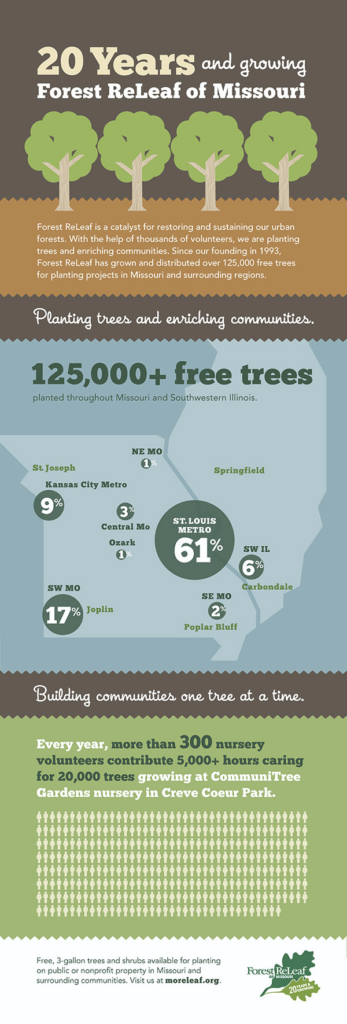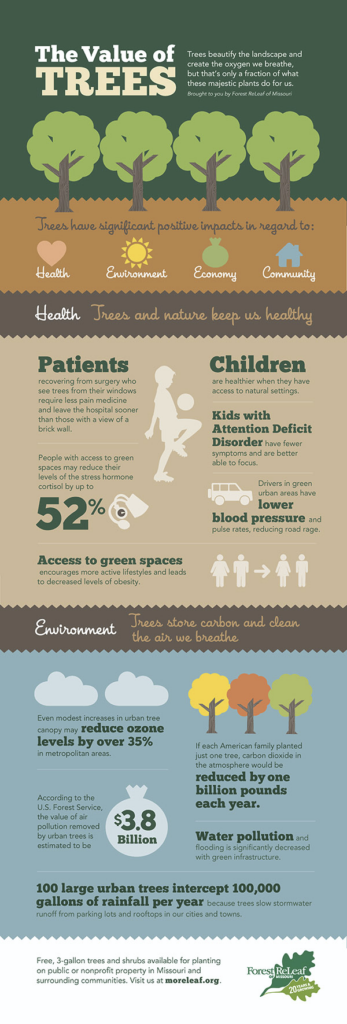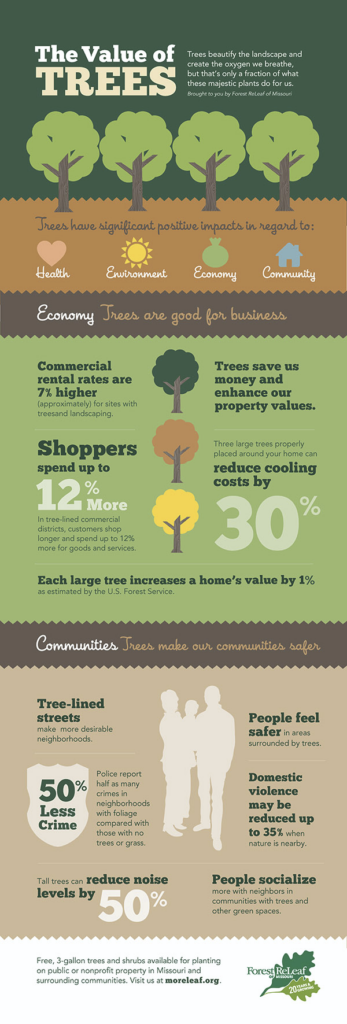Why Trees?
Missouri trees contribute endless benefits to people and places across the state. A growing body of research shows the positive impact trees have on our quality of life, public health, clean air and water, carbon sequestration, biodiverse wildlife, and more. Explore the various benefit calculations and research summaries to learn more.
The research is clear: trees have a significant impact on virtually every aspect of our lives. Our infographic includes a sampling of the many positive aspects of urban trees and forests. Social scientists and forestry experts continue to discover amazing correlations between the experience of nature and our health, safety, work life satisfaction and more.
Consider the following:
The experience of nature helps to restore the mind from the mental fatigue of work or studies, contributing to improved work performance and satisfaction.
Outdoor activities can help alleviate symptoms of Alzheimer’s, dementia, stress, and depression, and improve cognitive function in those recently diagnosed with breast cancer.
Public housing residents with nearby trees and grass were more effective in coping with major life issues compared to those with homes surrounded by concrete.
Exposure to nearby green space and trees may have a positive effect on infant birth weight, particularly for lower socioeconomic groups.
Outdoor stewardship volunteering is positively related to physical activity and self-reported health and depressive symptoms, especially among mid-life volunteers.
The presence of larger trees in yards and as street trees can add from 3% to 15% to home values throughout neighborhoods.
Among minor crimes, there is less graffiti, vandalism, and littering in outdoor spaces with natural landscapes than in comparable plant-less spaces.
Ever more studies confirm the relationship between neighborhood open space and physical activity. A study calculated a $2,200 reduction in average annual healthcare charges per adult for those who had been sedentary, but became active.




